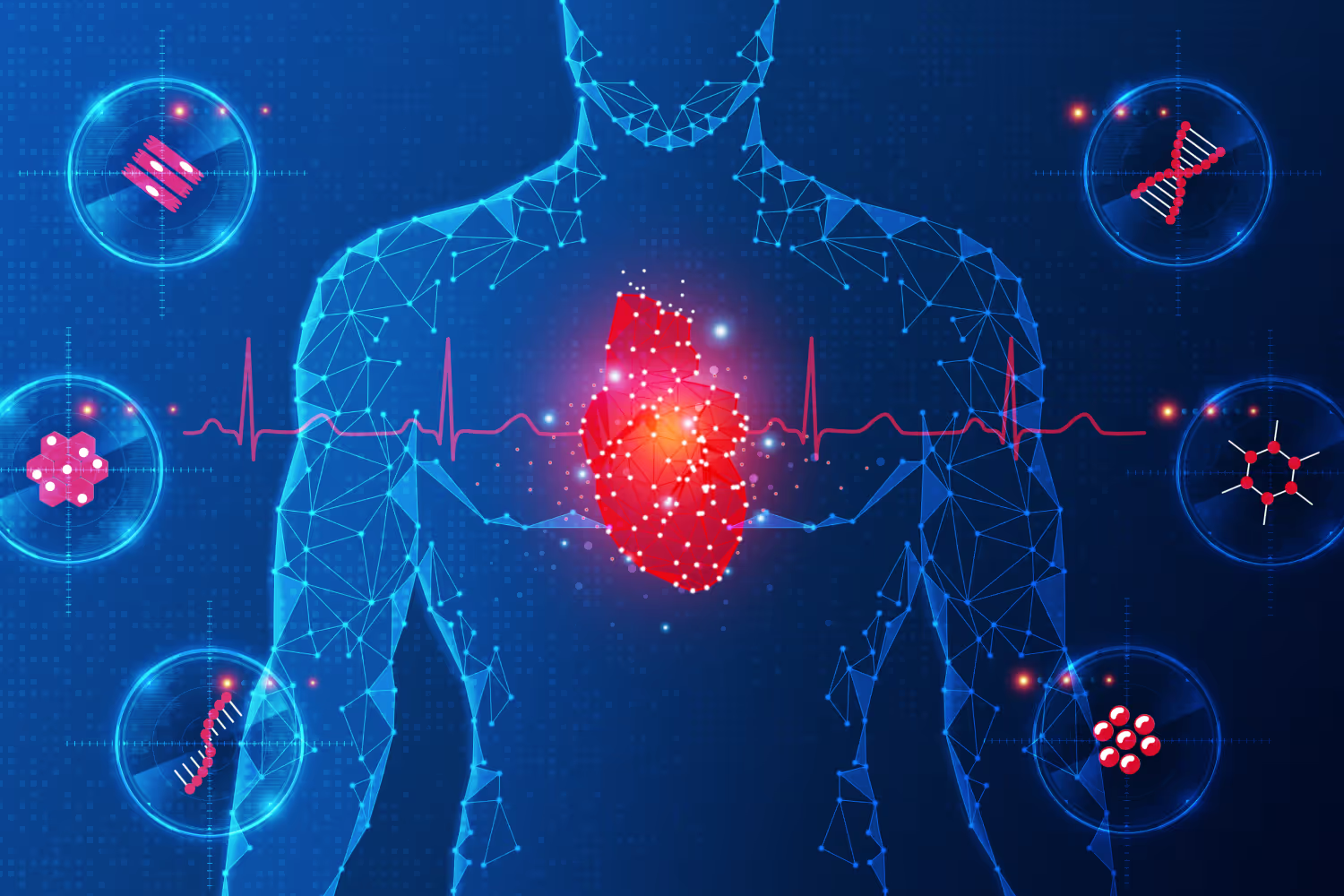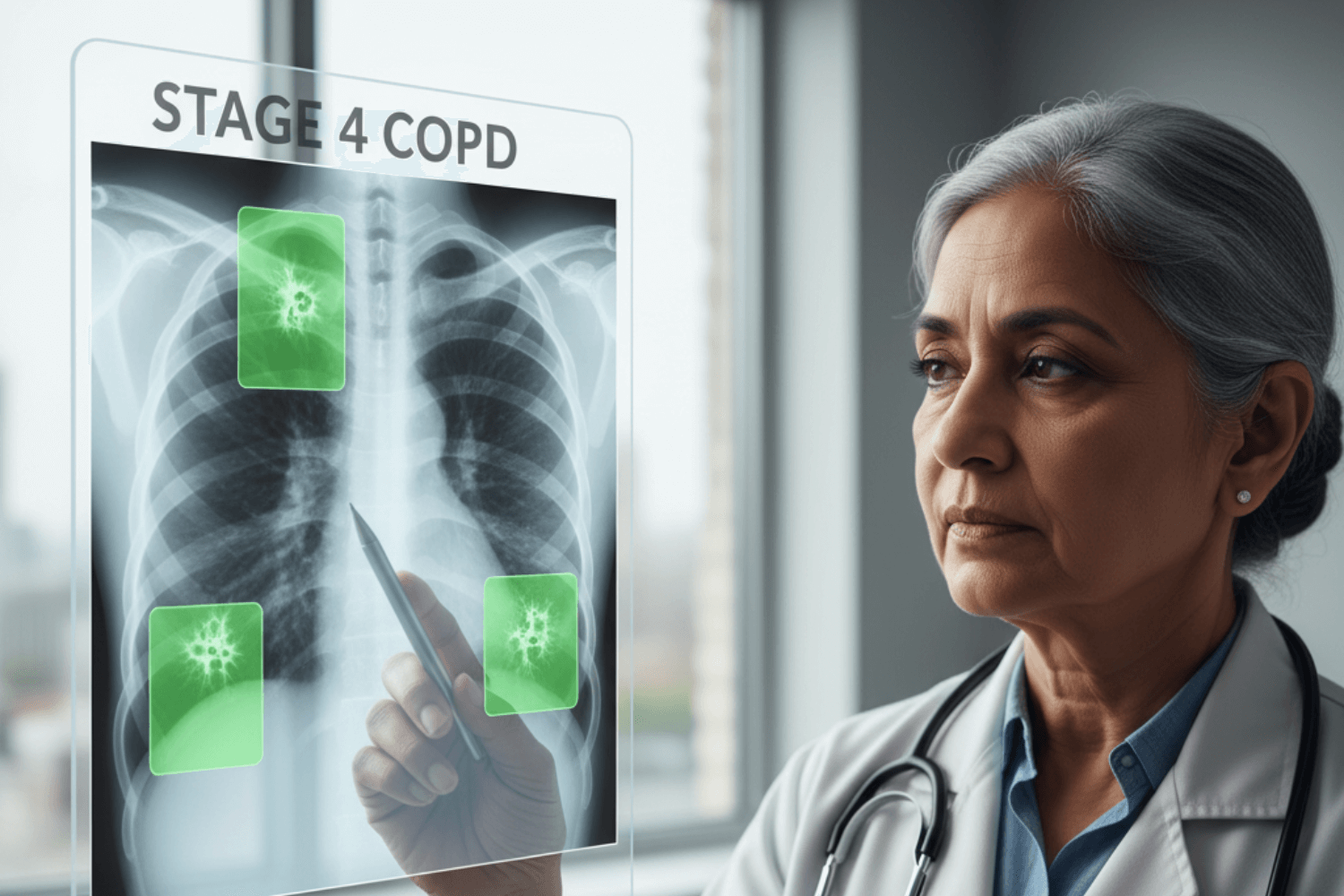
A heart attack, also known as myocardial infarction, can be a scary event, especially if you don’t know it is happening until afterward. Cardiac enzymes are a way for healthcare providers to diagnose heart attacks soon after they occur. The test results from cardiac enzymes can aid providers in developing treatment plans for a happier, healthier you in your heart health journey.
What are cardiac enzymes, though, and how does this cardiology test work? Moreover, what are treatment options if you do have elevated cardiac enzyme levels? Read on to learn more with Carda.
What Are Cardiac Enzymes?
Cardiac enzymes, also known as cardiac biomarkers, are enzymes that your heart releases into the bloodstream if it incurs damage or stress. A lack of oxygen causes damage or stress, which then prompts the enzyme release.
How Do Cardiac Enzymes Work in the Body?
Enzymes are proteins involved in chemical processes at the cellular level in your body, including metabolism. Your body has thousands of enzymes, and each helps with different bodily functions like breathing, muscle contraction, or digestion.
Cardiac enzymes are proteins from your heart muscle cells. When your heart incurs damage from an injury like a heart attack, it releases enzymes that leak into the bloodstream. The heart usually releases these proteins into the bloodstream consistently for a certain number of hours after a heart attack occurs.
What Is a Cardiac Biomarker Test?
A cardiac biomarker test, sometimes also referred to as a cardiac marker test, can measure the amount of proteins, enzymes, and hormones your heart muscle releases. Healthcare professionals can use this test to determine the level of heart muscle damage you acquired during a heart attack, as high levels of these biomarkers may appear after your heart has experienced severe stress.
The test can also be used to confirm that your biomarkers are in a normal range in order to rule out acute myocardial infarction or congestive heart failure.
How Does a Cardiac Biomarker Test Work?
The test detects levels of the cardiac enzyme creatine kinase as well as troponin levels, as cardiac troponin T is a regulatory protein.
Your healthcare provider will order the test and have your blood drawn at a lab. The lab technician will collect the blood sample and analyze it for cardiac enzyme levels. If your levels of troponin, for example, are higher than normal, this may indicate cardiac damage or dysfunction.
What Can a Cardiac Biomarker Test Tell You?
Because the heart muscle usually leaks a consistent level of cardiac proteins into the bloodstream for a certain number of hours after a heart attack, the test can diagnose a heart attack.
Usually, doctors conduct a handful of cardiac enzyme tests over a designated time frame. There are normally no detectable levels of cardiac enzymes that show up in a blood sample test — the levels are too low at baseline in the bloodstream to be able to show up on a test. However, if the results show a rise and fall in cardiac enzyme levels, this could indicate that a heart attack occurred.
How Are Cardiac Enzymes and Heart Attacks Related?
A heart attack occurs when a coronary artery experiences severe to full blockage, preventing blood flow from passing through the heart. The longer a person goes without treatment for a heart attack, the more damage the heart muscle can incur.
Within four to six hours after the heart cells start becoming damaged during a heart attack, the heart muscle leaks the enzyme creatine kinase into the bloodstream. Then, within 24 hours after a heart attack, the muscle releases very high amounts of this enzyme.
Shortly after heart cell damage occurs (within two to six hours of a heart attack), the heart muscle releases troponin into the bloodstream. Troponin reaches highly elevated levels anywhere between 12 to 26 hours after a heart attack.
Do Cardiac Enzymes Indicate an Increased Risk of Heart Attacks?
Cardiac enzymes can indicate an increased risk of heart attacks. Because the test shows how much damage one's heart muscle incurred, it can give your healthcare provider an idea of how severe your heart attack was.
If you have a heart attack, you are at increased risk of having a second heart attack. About one in five people who experience a heart attack have a second heart attack within five years. Fortunately, there are measures you can take to decrease your risk of a heart attack in the future.
What Are the Options If You Have Elevated Cardiac Enzymes?
If you have elevated cardiac enzymes, your doctor may diagnose you with a heart attack or acute coronary syndrome. If you are diagnosed with a heart attack, immediate treatment may be necessary to prevent further damage to your already damaged heart muscle.
Fortunately, there are many different treatment options for a healthy recovery, including medication, surgical intervention, and cardiac rehab. Let's take a look at each of these options below.
Medication
There are many different medication options to treat a heart attack, and the specific medication your doctor or cardiologist prescribes depends on the severity of your heart attack. Aspirin is a quick, over-the-counter medication you can take immediately, even before you get to the hospital, to help mitigate blood clotting.
Once you get to the hospital, you may be administered thrombolytics or fibrinolytics, which are clot-eliminating medications that can help restore blood flow to the heart muscle. You may also be given nitroglycerin, a blood vessel-widening medication that can help restore blood flow to the heart as well as help relieve chest pain that often comes with a heart attack.
Beta-blockers are another common heart attack medication. They lower blood pressure and help to get your heartbeat back to normal levels. ACE inhibitor medications can also help reduce your blood pressure and alleviate the stress and exertion your heart muscle experiences during an attack.
Your doctor might also prescribe statins, which help target and lower bad cholesterol levels (LDL). Elevated LDL levels are a risk factor for a heart attack because they can lead to atherosclerosis, which can clog arteries and ultimately lead to blockages.
Surgical Interventions
Sometimes, medication is not enough to alleviate a blockage, or the heart attack is too severe and requires additional intervention. In this case, you might receive cardiac surgery.
A coronary angioplasty and stenting procedure is one type of medical intervention that can help treat a heart attack. The procedure involves moving a catheter into the narrowed or blocked area of the coronary artery and then inflating a balloon at the blockage site to eliminate the blockage. The goal is to reopen the closed-off section of the artery to restore blood flow to the heart muscle.
During this angioplasty procedure, the surgeon may decide to place a stent in the damaged artery to help ensure that the artery stays open after the procedure is done. Stents can greatly lower your risk of developing another heart attack, and often a stent is covered in a medicine that will help the arteries stay open.
Another medical procedure that can help treat a heart attack is coronary artery bypass surgery, also known as open-heart surgery. This procedure involves moving a blood vessel from elsewhere in the body into the heart muscle. The blood can then "bypass" the damaged artery that was too narrow to move blood through and take the new healthy artery pathway to the heart.

Cardiac Rehab
Cardiac rehabilitation is a program that helps you recover after a heart attack. The program focuses on supervised exercise and education around lifestyle changes you can make to enhance your cardiac wellness and slowly get back on track toward your regular routine.
With in-person rehabilitation, you might be assigned a different provider each time. However, with virtual rehabilitation, you are assigned a consistent guide to complete your rehabilitation program. After answering a short and easy set of questions about your needs and goals, you will be matched with an expert physiologist to help guide you through your rehabilitation journey from the comfort of your own home.
Cardiac rehab is clinically proven to improve your health and lifestyle, and Carda’s virtual program is cheaper and more effective than in-person cardiac rehab. Get started today for tips on stress management, energy level support, and increased knowledge about your cardiac recovery journey.
The Bottom Line
Cardiac enzymes are the proteins that your heart releases after a heart attack as a response to muscle damage. Your heart releases these enzymes for hours after a heart attack occurs, with peak release levels occurring anywhere between 12 and 24 hours, depending on the type of protein.
Cardiac enzymes serve as a good biomarker to test whether someone has had a heart attack. While these enzymes are normally at too low of levels to be detected in the blood, their levels increase significantly after a heart attack or other form of cardiac stress. Healthcare providers frequently rely on cardiac enzyme tests to diagnose a heart attack and to determine the next steps for someone’s cardiovascular recovery journey.
Cardiac rehabilitation, such as a virtual option with Carda, is an important part of the cardiovascular recovery journey. Support your heart health and overall wellness today with support from a program that works for you.
Sources:
Cardiac Enzyme Studies - Health Library | New York Presbyterian







